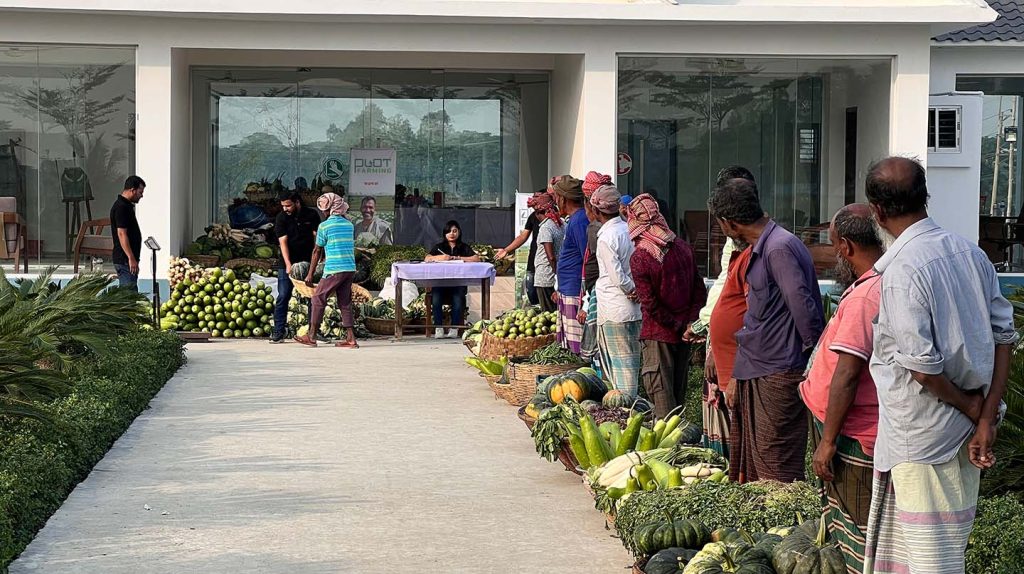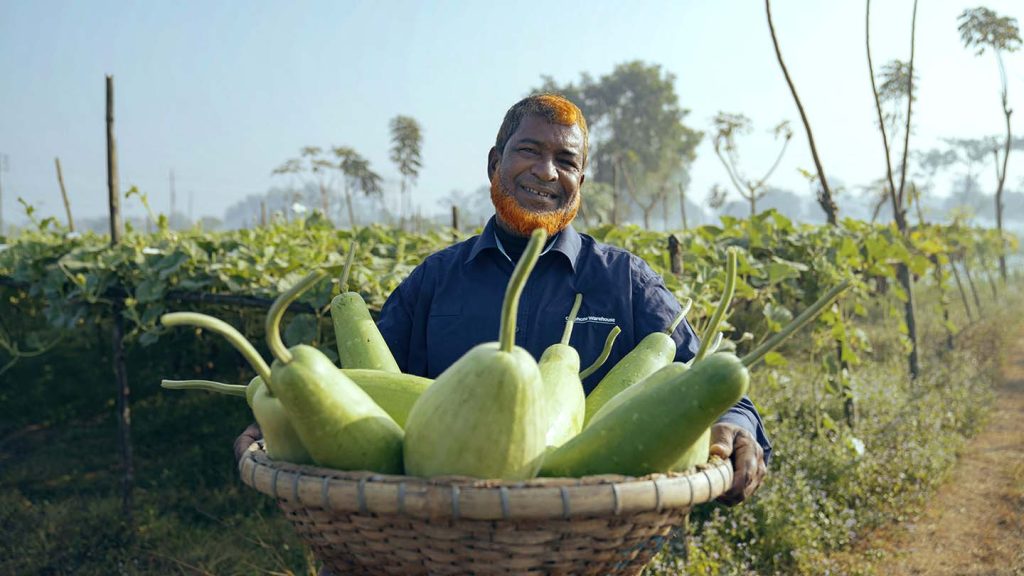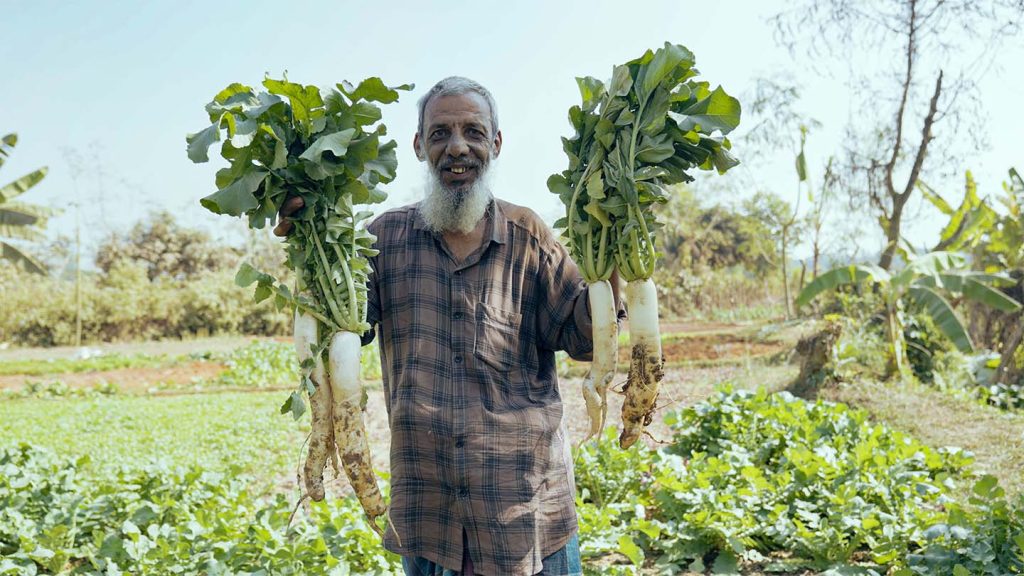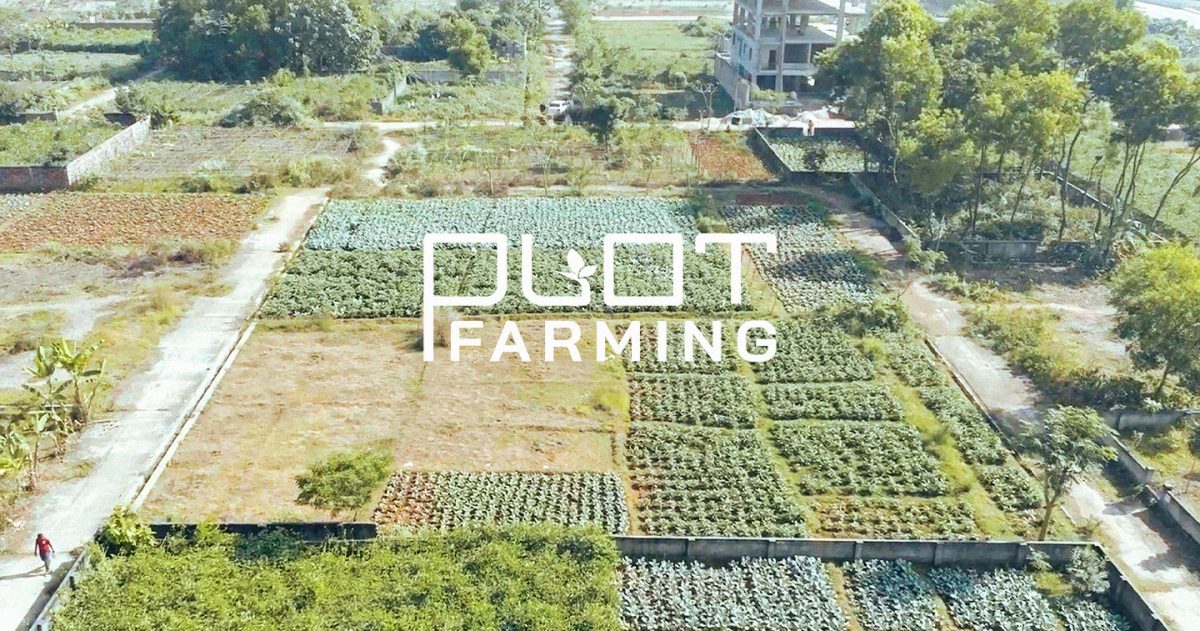DHAKA, BANGLADESH — Bangladesh, a small agrarian nation with 175 million people, faces a growing challenge: rapid urbanization is swallowing up fertile lands, while the country remains heavily dependent on food imports. Real estate companies acquire and sell these lands to buyers who see them as long-term investments, leaving them empty for decades. Simultaneously, landless farmers, struggling below the poverty line, migrate to cities in search of better opportunities, often finding themselves in precarious conditions. Recognizing this critical issue, Shopnodhora, an eco-friendly Bangladeshi real estate company, has recently launched “Plot Farming” – a groundbreaking initiative that transforms unused housing plots into productive farmlands. This innovative approach not only revitalizes urban spaces but also provides sustainable livelihoods to landless farmers.

“Plot Farming” was conceived and executed by POP5, a full-service creative agency from Bangladesh, on behalf of Shopnodhora. To bring this project to life, Shopnodhora first sought permission from plot owners to use their idle lands. Once the necessary agreements were secured, landless farmers were paired with these plots and began cultivation under careful supervision. The company monitored the entire process, ensuring that the farming activities were well-supported and productive.
In line with Bangladesh’s historical Borga Chashi system, which has been in place for hundreds of years, the produce from these farms is shared equally between landowners and farmers, ensuring a fair and mutually beneficial agreement. This age-old practice, which has roots in the agrarian traditions of Bengal, helps foster cooperation between those who own the land and those who work it, ensuring both parties benefit from the harvest.

After each harvest, the produce is shared equally between the farmers and the landowners, creating a mutually beneficial system that incentivizes participation. This system not only revives a traditional practice but also adapts it to the modern urban landscape, helping address both food security and the growing issue of landless farmers.
Since its launch on October 01, 2024, in Dhaka, Plot Farming has already achieved remarkable results. A total of 3,724 housing plots have been converted into thriving farms, providing employment opportunities for 1,232 landless farmers. By the end of December, the initiative led to the harvest of 136,000 kilograms of produce, contributing to local food security. Recognizing its impact, 14 real estate companies have replicated the initiative, amplifying its reach and benefits. Additionally, Shopnodhora has witnessed a 210% increase in brand love and a 160% rise in referral sales, showcasing the initiative’s success not only in fostering sustainability but also in strengthening customer loyalty.

Understanding that systemic change requires collective action, Shopnodhora reached out to its competitors, urging them to adopt Plot Farming as well. The response was overwhelmingly positive, with several real estate companies following suit and implementing similar initiatives. This collaborative effort has the potential to reshape the landscape of urban agriculture and create a far-reaching impact on food security.
The success of Plot Farming in Bangladesh underscores its potential as a global model. Wherever fertile housing plots lay unused, this initiative can be replicated, bridging the gap between urban development and agricultural sustainability. By turning idle lands into thriving farms, Plot Farming is more than just an initiative – it is a vision for a self-reliant future. It fosters long-term urban agriculture, generates fixed employment, reduces import dependency, and strengthens the economy. Shopnodhora’s pioneering efforts mark a significant step towards a sustainable Bangladesh, ensuring that every inch of fertile land contributes to feeding the nation.








